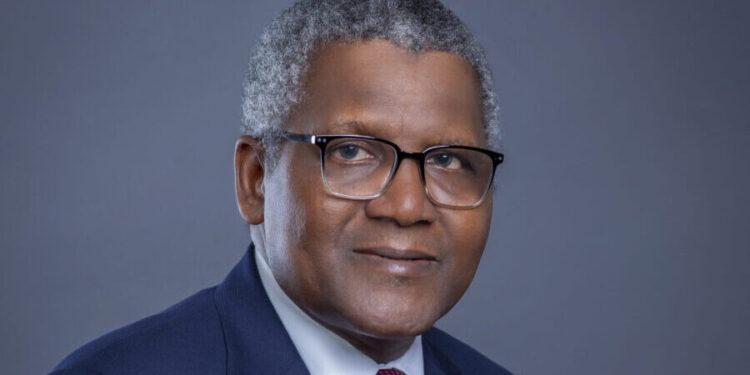Africa’s richest man, Aliko Dangote, has recounted the challenges his venture faced in Nigeria’s textile industry, resulting in his company losing billions of naira in investment.
Speaking at the 2024 Manufacturers Association of Nigeria (MAN) summit in Abuja, Dangote shared his experience and the difficulties encountered by the Dangote Group in the textile sector during the boom years of the 1960s.
Dangote stated that his company invested billions of naira in the textile industry following its boom in the 1960s. However, the lack of government protection through policy decisions led to the shutdown of two factories.

“In the booming years of the textile industry, we established Dangote General Textile Mills in Kano and heavily invested billions. We also acquired Nigeria Textile Mill, a mill initially set up for the Western Region by Chief Obafemi Awolowo in 1960. Despite our massive investments, the absence of government support forced us to shut down both factories,” Dangote revealed.
He further mentioned the significant financial strain the company faced, including selling Liberty Merchant Bank for N1.2 billion to pay off pensions and gratuities of workers in Nigeria’s textile mill.
“The biggest challenge was with Nigeria Textile Mill, where workers had served for 25 to 30 years. Paying their pension and gratuity was tough. Fortunately, we sold Liberty Merchant Bank for N1.2 billion, and out of that, N985 million was used to settle pensions and gratuities. That’s how we exited the textile business, having burnt our fingers,” Dangote said.
READ ALSO: Aliko Dangote Criticizes CBN’s Interest Rate Hike, Calls for Industrial Protection
Interestingly, Dangote disclosed that he later turned down an invitation from Former President Obasanjo to reinvest in the textile industry, citing his past experiences.
“Even when Obasanjo asked us to come back and invest in textile, I told him no, thank you,” the business mogul added.
Industry Insights
Nigeria’s textile industry, once a thriving sector, continues to struggle despite the country’s vast market potential for cotton production. In the 1970s, Nigeria was an industrial hub for textile production with around 180 textile mills employing over one million Nigerians. Notable mills included United Nigerian Textile Limited, Aswani Textile, Afprint, Asaba Textile Mills, and Edo Textile Mills.
Recent data from the National Bureau of Statistics (NBS) indicates that textiles contributed a negative 1.75% to Nigeria’s Gross Domestic Product (GDP) in the first quarter of 2024, highlighting its underperformance.
However, there is a glimmer of hope for the industry. The Minister of Industry, Trade and Investment, Doris Uzoka-Anite, recently announced a $3.5 billion deal with Afreximbank to help revive the moribund textile sector, among others.



